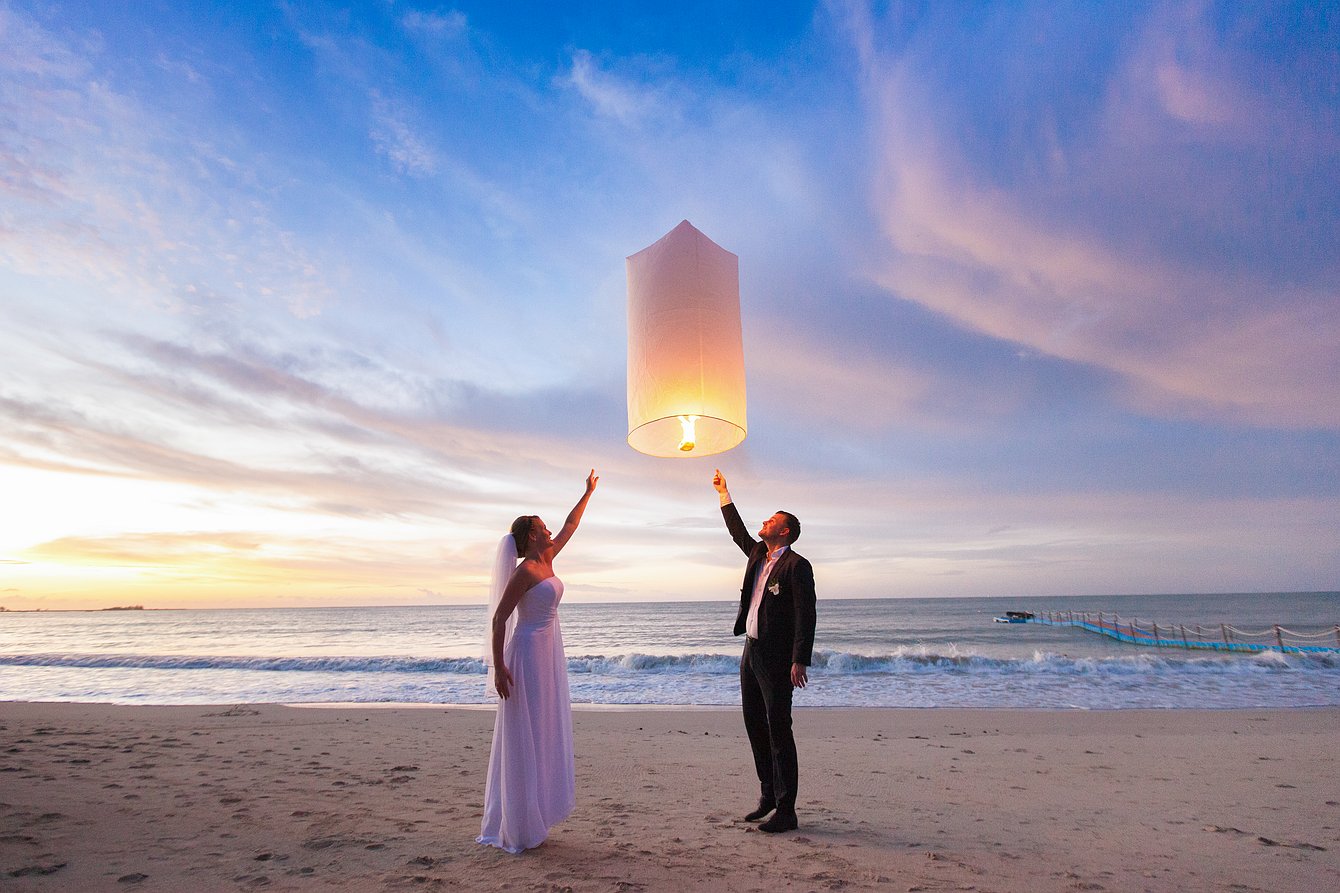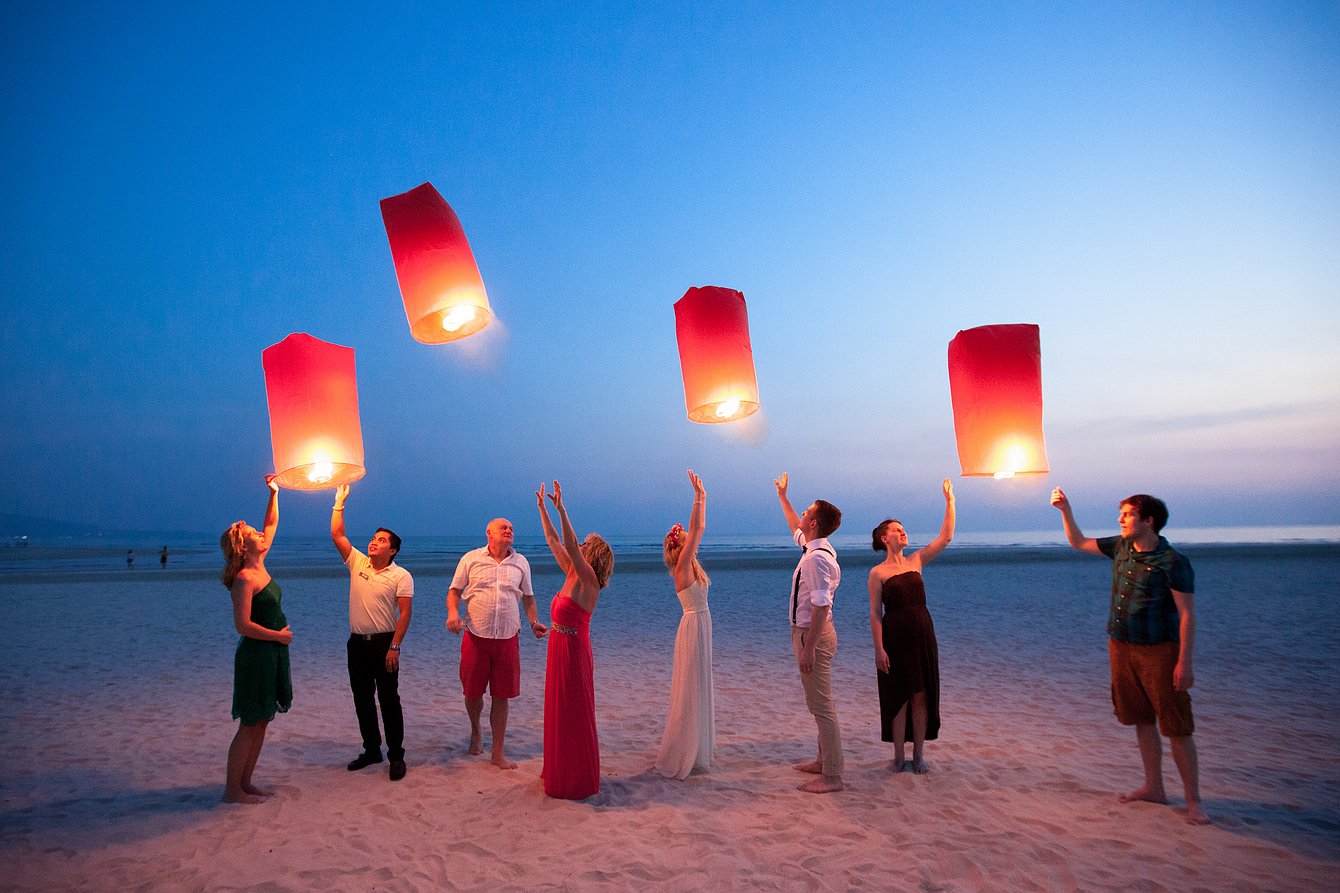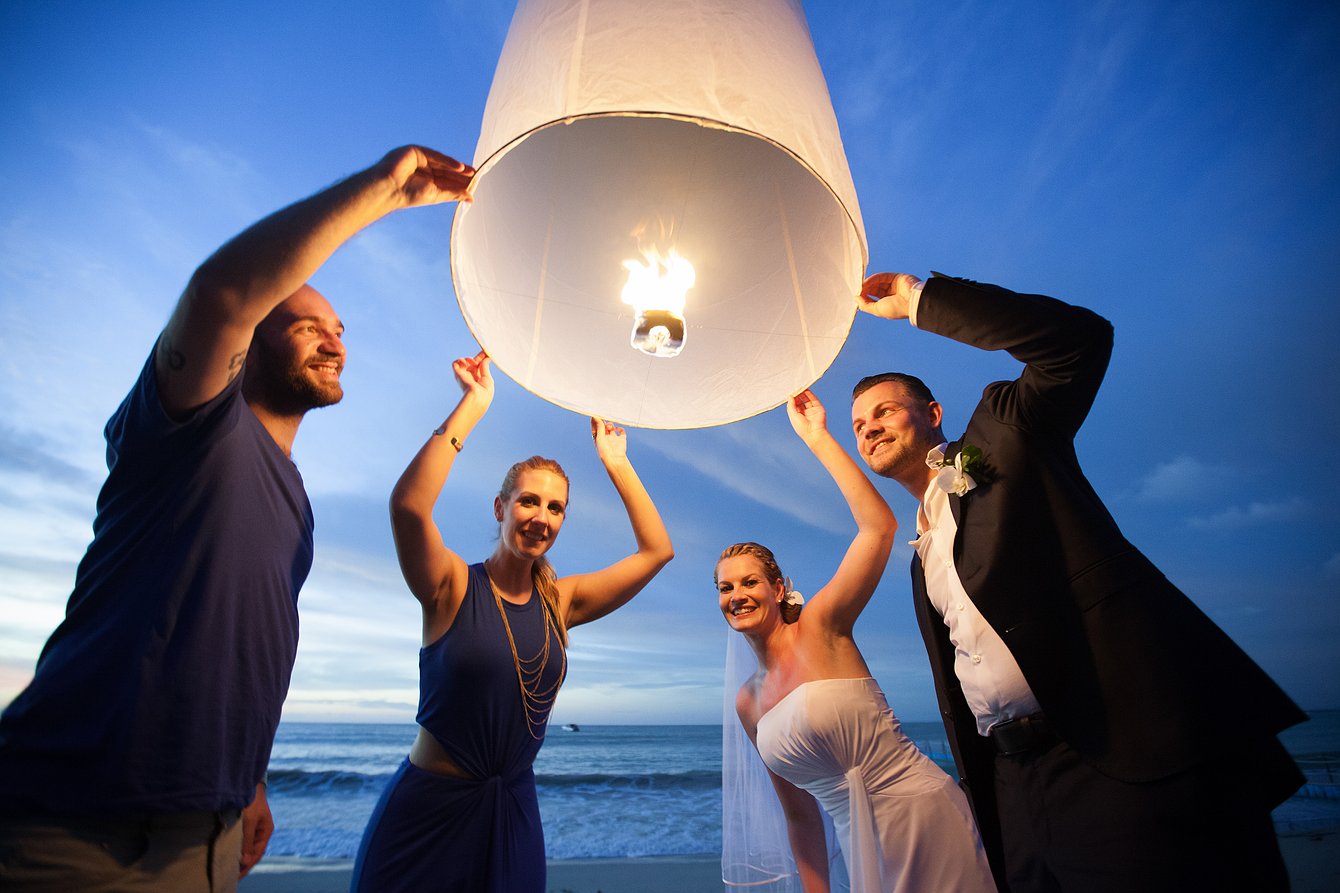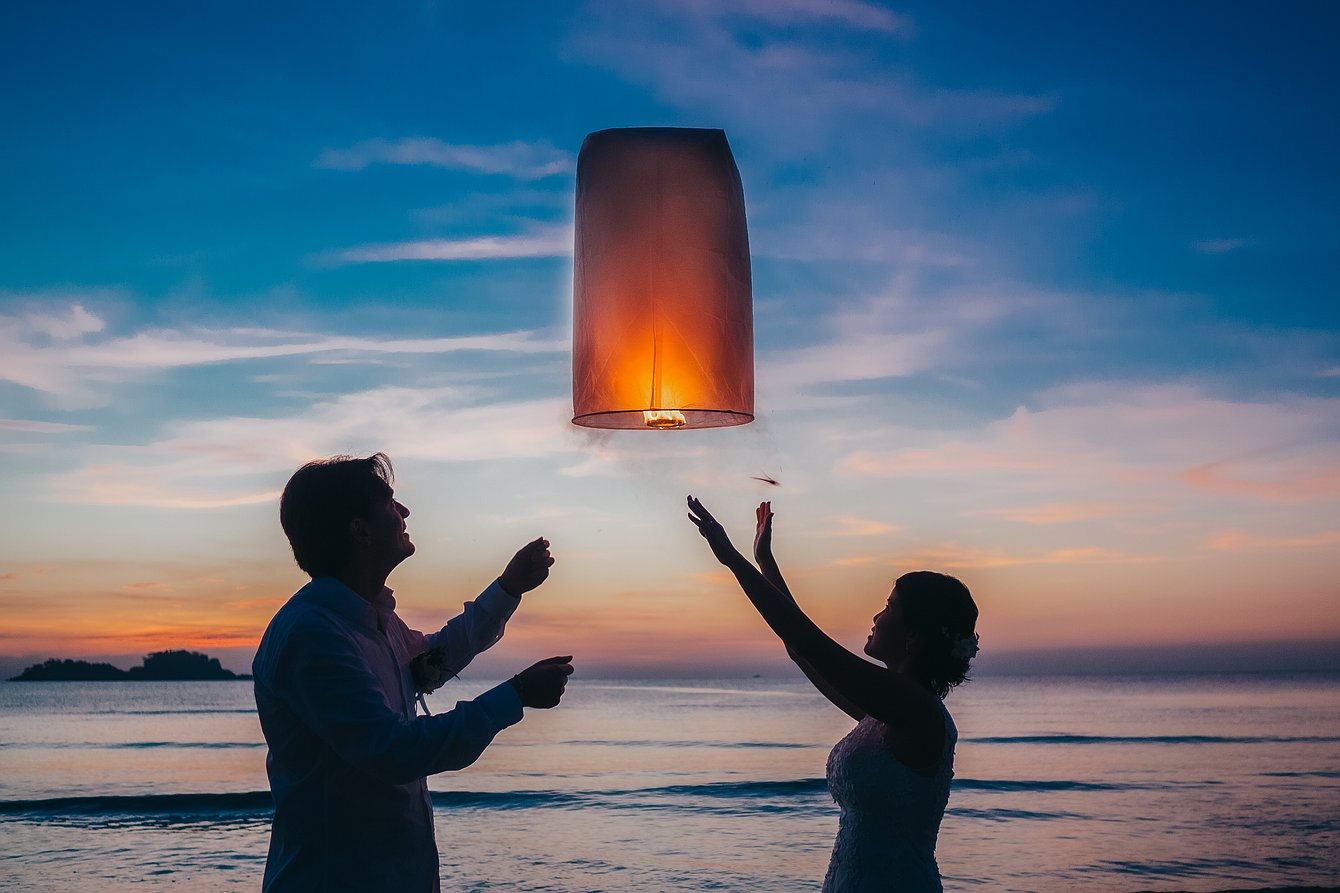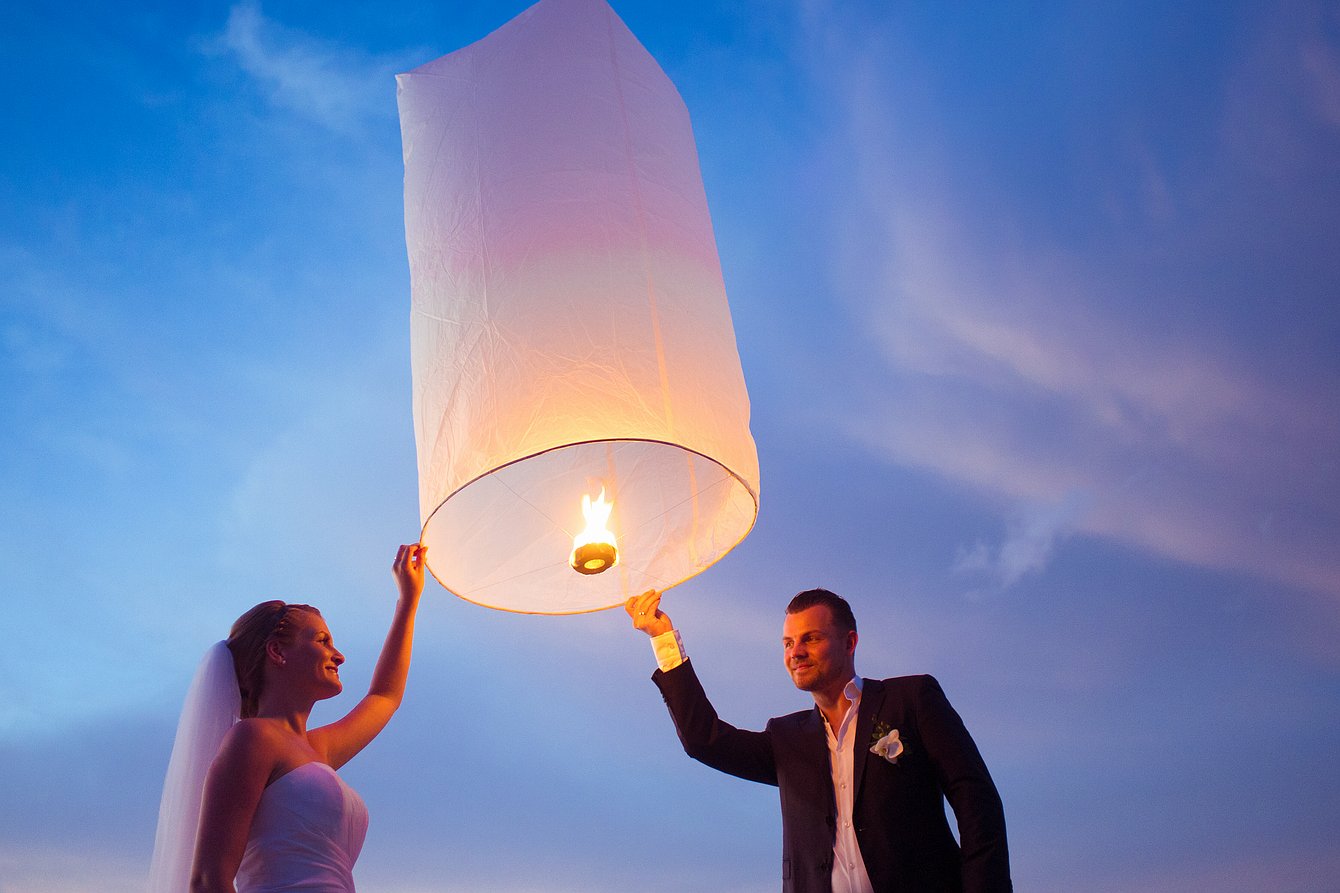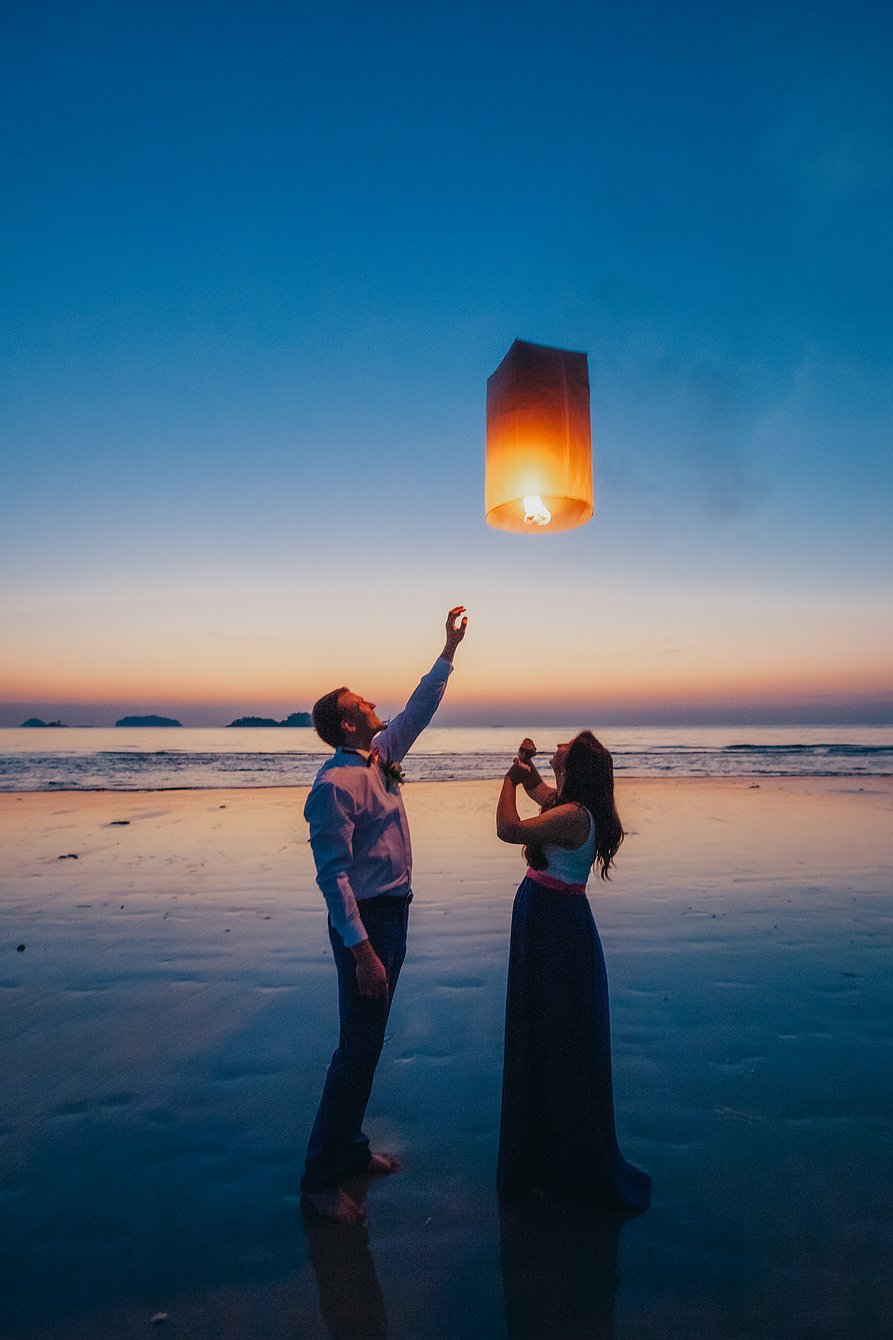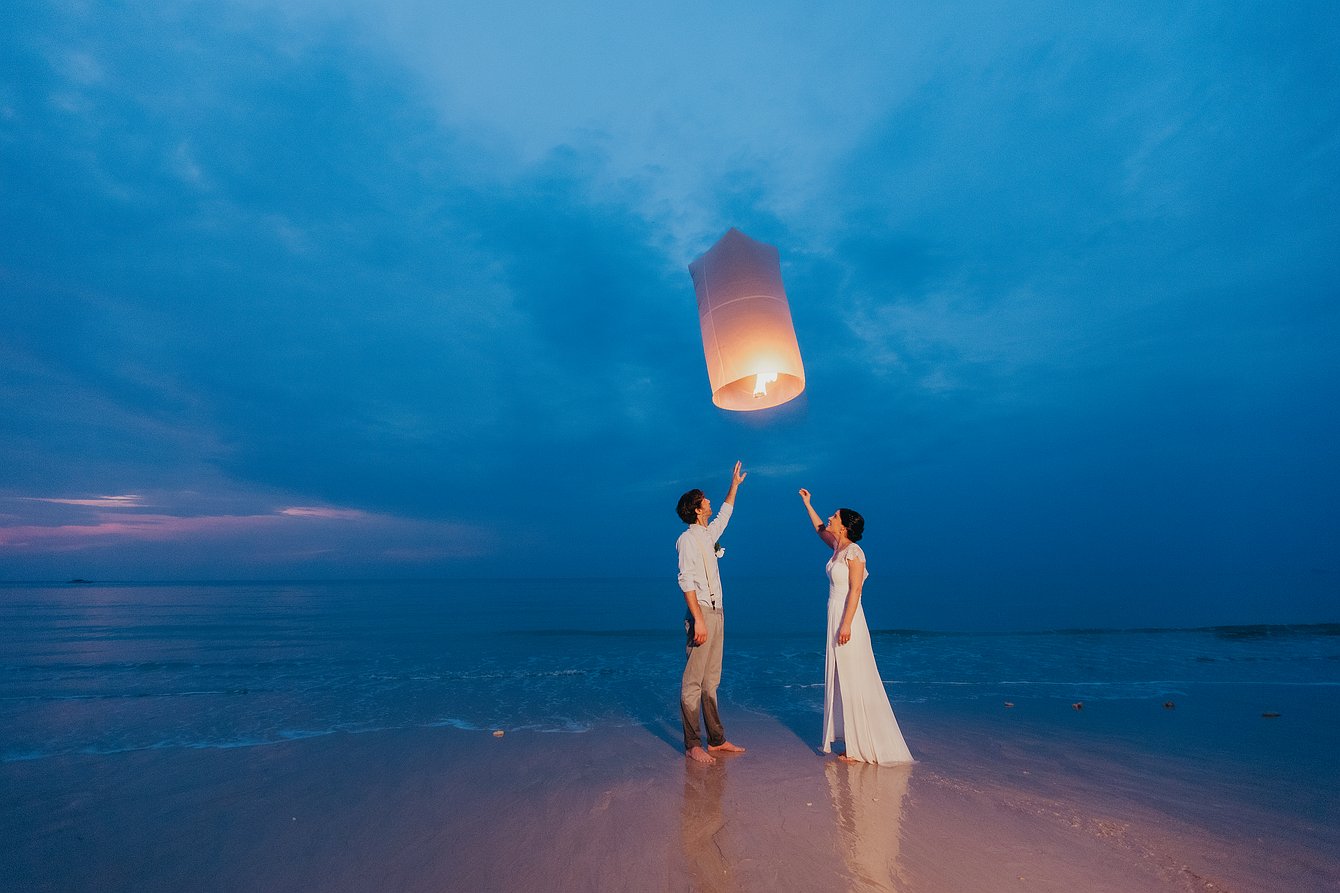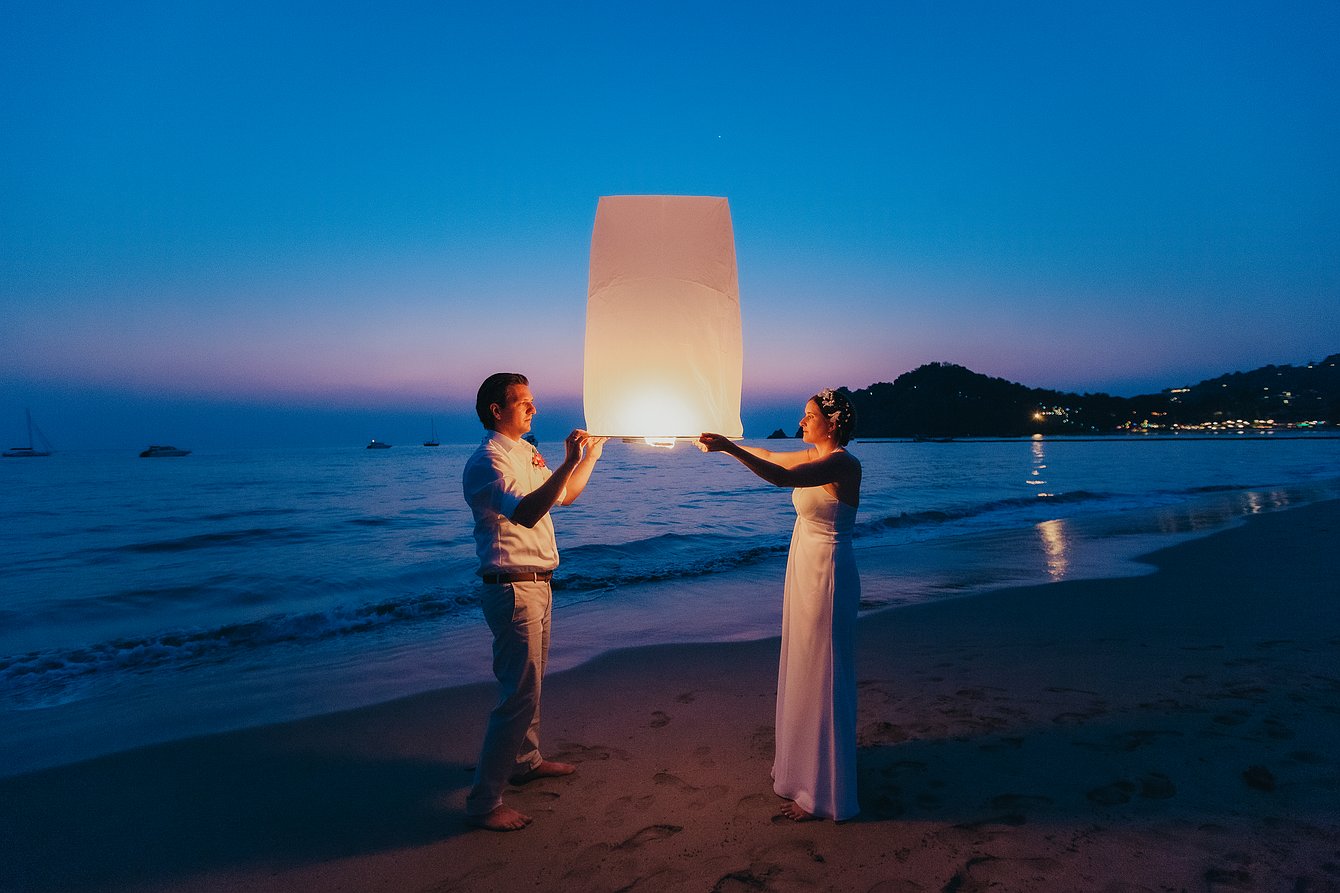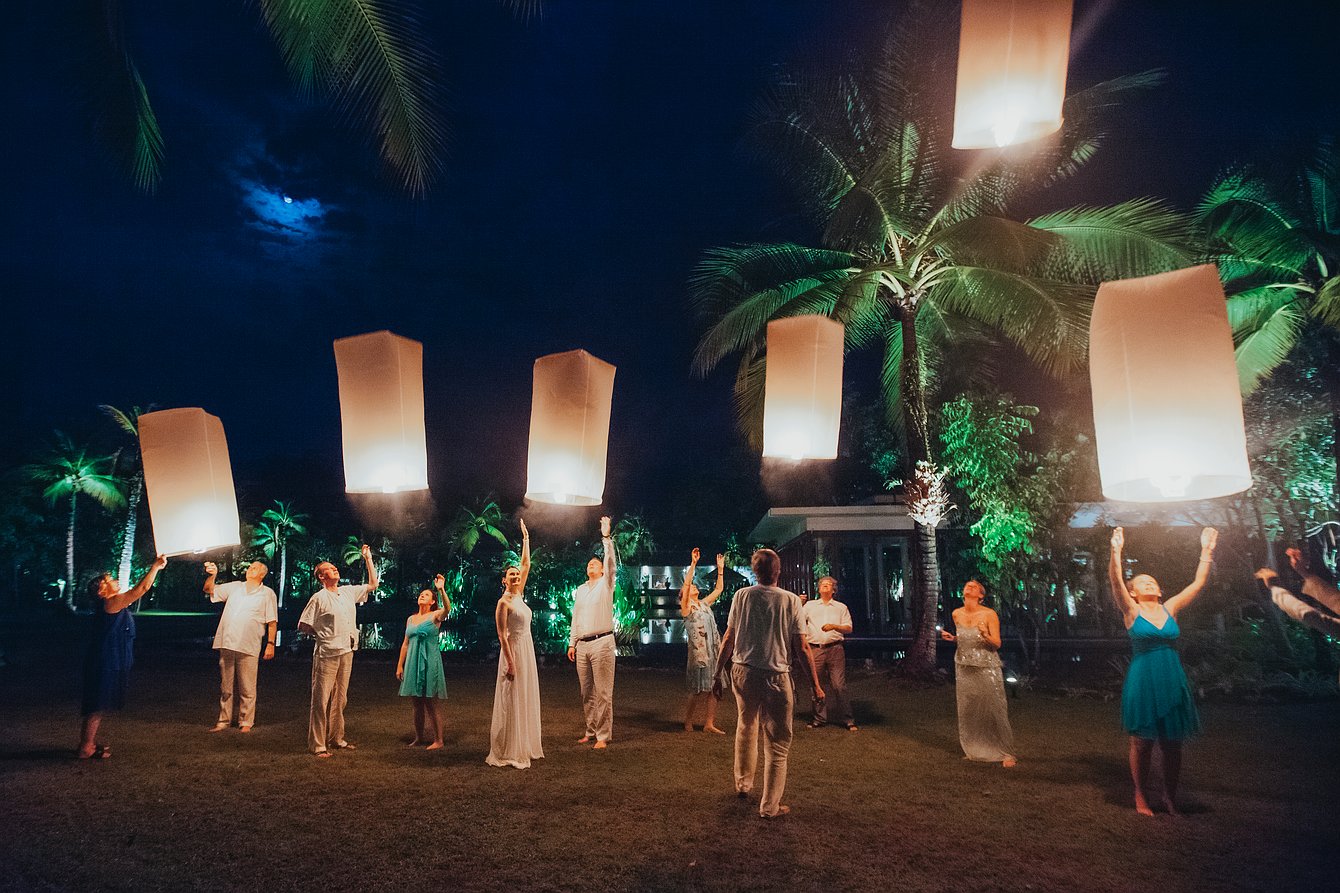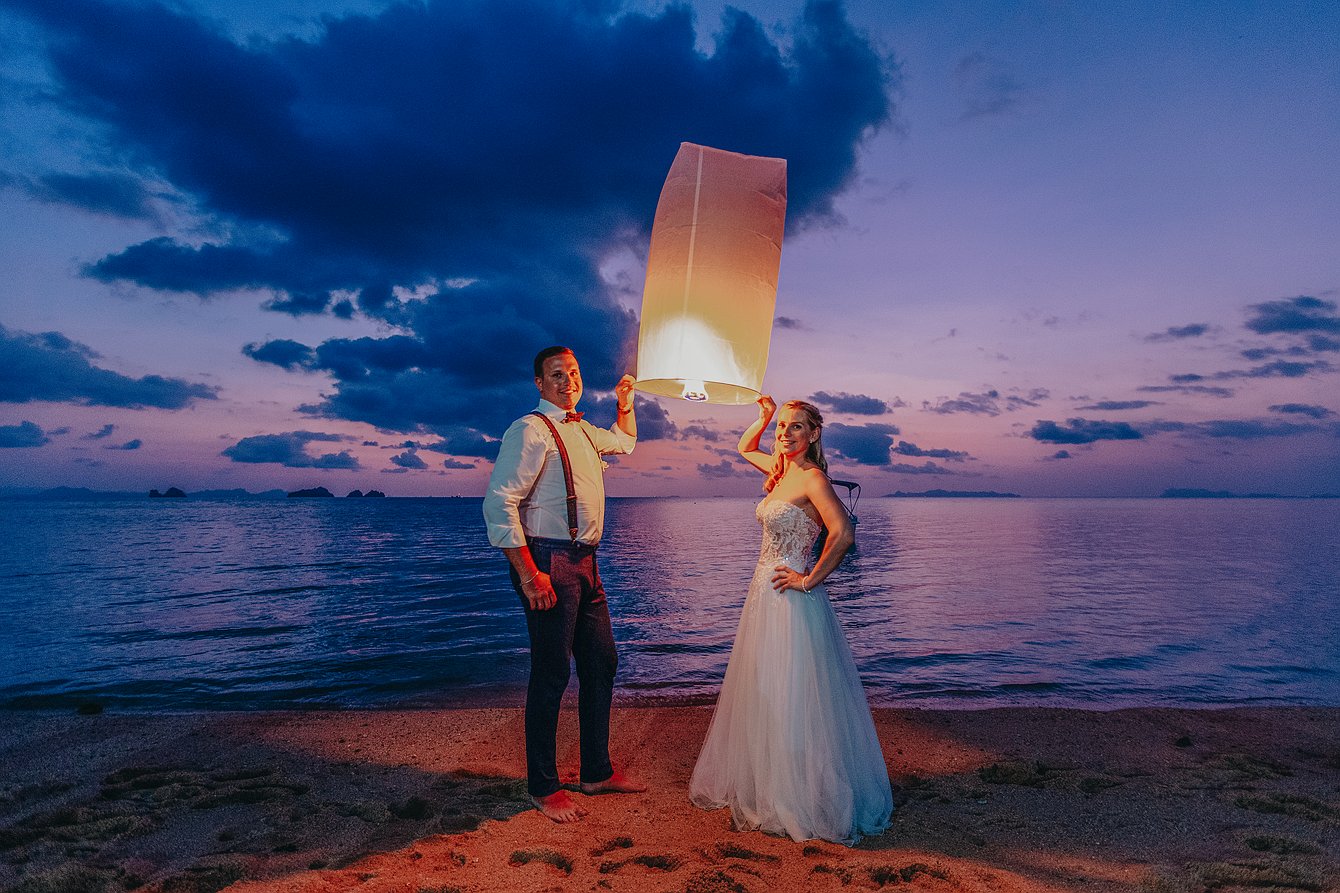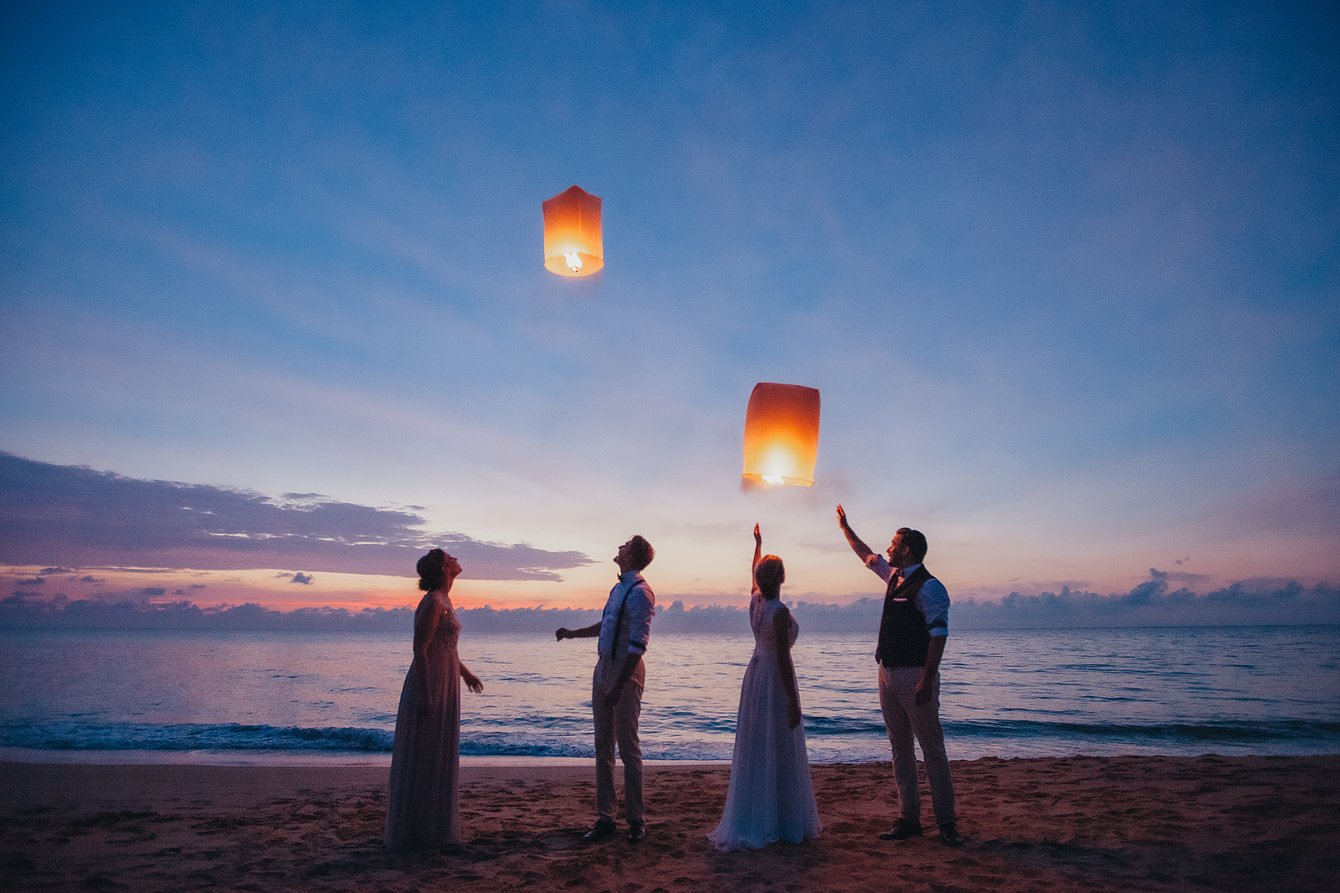Sky Lanterns for Weddings in Thailand?
Who doesn’t know them? The beautiful sky lanterns that light up the night skies of Thailand—especially in tourist hotspots like Khao Lak, Phuket, or Chiang Mai—never fail to enchant visitors.
In 2005, around 5,000 sky lanterns were released on the beach in Khao Lak in memory of the victims of the devastating tsunami. For years, it was a common sight to see couples at sunset, sending sky lanterns into the sky as a symbol of hope and love. Sky lanterns have also been a beloved tradition at weddings, creating magical moments and unforgettable photo opportunities.
Releasing sky lanterns into the night sky is meant to bring good luck to newlyweds as they begin their life together. And honestly, is there anything more moving than watching dozens of white or colorful lanterns drift upward in perfect harmony, lighting up the evening sky?
But as enchanting as this tradition is, there’s also a downside.
Should you avoid using sky lanterns?
There’s no doubt that releasing sky lanterns is a beautiful and meaningful ritual, especially at weddings. Many of our couples dreaming of a Thailand wedding ask us if it’s possible to include a lucky lantern in their celebration.
However, sky lanterns come with serious risks for people and the environment. During the famous Buddhist Yi Peng Lantern Festival in Chiang Mai—where thousands of lanterns fill the sky—regional air traffic is sometimes completely suspended. The thought of a lantern getting caught in an airplane engine is truly alarming.
Sky lanterns also pose a significant fire hazard if they come down while still burning. Many resorts and bungalow complexes in Thailand have thatched roofs, making them particularly vulnerable. No one wants to be responsible for a fire caused by a lantern landing on a roof. The risk is especially high during periods of prolonged dry weather.
For these reasons, many resorts, hotels, and even local authorities have banned or strictly regulated the use of sky lanterns. We recommend considering safer and more environmentally friendly alternatives to make your wedding unforgettable—without the risk.
Sky lanterns are typically made of paper and a wire frame, which never decomposes naturally. Most often, after burning out, these lanterns fall into the ocean—precisely where they don’t belong.
Thai authorities have repeatedly warned about the dangers of sky lanterns. In fact, there are now strict regulations across the country because sky lanterns have caused flight cancellations in the past. Officially, they may only be released in designated areas to avoid interfering with air traffic and to ensure safety.
Meanwhile, more and more hotels and resorts in Thailand have completely banned sky lanterns due to the risk of fire. Violations can result in severe penalties and fines.
Important Information about Releasing Sky Lanterns
For safety and liability reasons, we as wedding planners cannot permit the release of sky lanterns at any of our events. We kindly ask for your understanding, as we do not want to risk potential fires, environmental damage, or any harm to you, our team, or third parties.
Furthermore, the release of sky lanterns is strictly prohibited by local authorities on the island of Koh Samui. All of the villas we offer as wedding venues also have a clear ban on sky lanterns.
Are there alternatives to sky lanterns?
While it’s hard to truly replace the magical moment of a lantern floating into the night sky, there are safer and more environmentally friendly options. One beautiful tradition is the release of “Loy Krathong” floating offerings—an enchanting ritual that we’ll be sharing more about in our wedding magazine soon.
It’s also important to note that more and more hotels and resorts across Thailand have completely banned sky lanterns due to fire hazards. Violations can result in severe penalties and fines.
If you have any questions about memorable and safe alternatives, we’re always happy to advise you!
